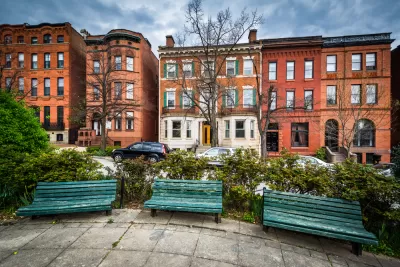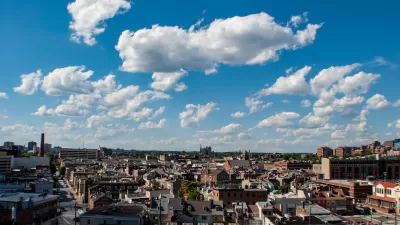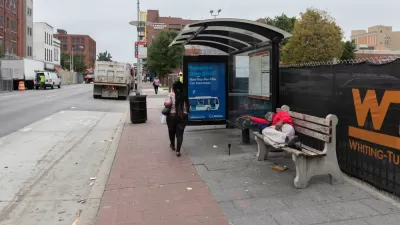A 1970s program let Baltimore residents purchase city-owned homes for $1. Now, the city council president wants to bring it back.

As reported in an article by Margaret Chadbourn, Baltimore's City Council president wants to revive a decades-old plan to lease city-owned homes to low-income families for $1.
If approved, the program would make thousands of vacant homes available to qualifying residents. Stipulations include a 15-year residency in the city, or five years of working as a city employee. Council President Mosby "is calling on the mayor to use about $200 million dollars from the pandemic relief bill enacted by Congress earlier this year to fund the program," writes Chadbourn.
The proposal mirrors a 1970s program that helped revitalize Baltimore neighborhoods through dollar home sales, government loans, and investment in local infrastructure. The success of the Dollar Homes program led to even further investment and redevelopment as more buyers sought low-cost houses to rehabilitate in formerly blighted areas.
FULL STORY: Baltimore City Council president brings back idea of "$1 house" program

Planetizen Federal Action Tracker
A weekly monitor of how Trump’s orders and actions are impacting planners and planning in America.

Congressman Proposes Bill to Rename DC Metro “Trump Train”
The Make Autorail Great Again Act would withhold federal funding to the system until the Washington Metropolitan Area Transit Authority (WMATA), rebrands as the Washington Metropolitan Authority for Greater Access (WMAGA).

The Simple Legislative Tool Transforming Vacant Downtowns
In California, Michigan and Georgia, an easy win is bringing dollars — and delight — back to city centers.

The States Losing Rural Delivery Rooms at an Alarming Pace
In some states, as few as 9% of rural hospitals still deliver babies. As a result, rising pre-term births, no adequate pre-term care and harrowing close calls are a growing reality.

The Small South Asian Republic Going all in on EVs
Thanks to one simple policy change less than five years ago, 65% of new cars in this Himalayan country are now electric.

DC Backpedals on Bike Lane Protection, Swaps Barriers for Paint
Citing aesthetic concerns, the city is removing the concrete barriers and flexposts that once separated Arizona Avenue cyclists from motor vehicles.
Urban Design for Planners 1: Software Tools
This six-course series explores essential urban design concepts using open source software and equips planners with the tools they need to participate fully in the urban design process.
Planning for Universal Design
Learn the tools for implementing Universal Design in planning regulations.
Smith Gee Studio
City of Charlotte
City of Camden Redevelopment Agency
City of Astoria
Transportation Research & Education Center (TREC) at Portland State University
US High Speed Rail Association
City of Camden Redevelopment Agency
Municipality of Princeton (NJ)





























